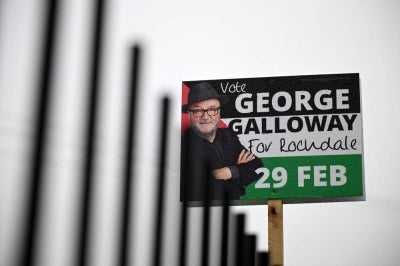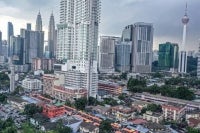Democracy finally manifested in Malaysia via the Unity Government
CHECKERED REALITY
SYAZA SHUKRI
Earlier this month, Malaysians woke up to the news of a riot that occurred in Brasilia. The protesters, who were mainly supporters of the former Brazilian president Jair Bolsonaro, took pages out of the Donald Trump supporters’ playbook and stormed federal offices including Congress, the Supreme Court and the Presidential Palace.
This was very much reminiscent of what happened two years prior when Trump supporters—more dangerously—stormed into the Capitol to prevent a sitting Congress from officially endorsing President Biden’s victory at the November 2020 election based on unfounded accusations of electoral fraud.
Similarly, Bolsonaro’s supporters wanted to protest President Lula’s victory in last year’s presidential election, also on charges of fraud. The difference was that President Lula had already been inaugurated and so the riots could not potentially overturn the result.
What happened in Brazil, and by extension in America two years ago, is a grave reminder of how democracy could be subjugated by those who do not understand the basic tenets of democracy despite participating in elections.
Brazil and the US, alongside Malaysia, have decades of experience in holding elections to determine the government. However, in the past decade or so, we have seen the rise of populist leaders who believe that in winning majority votes they have free reign to rule whereas democracy is the spirit in which the winner extends an olive branch to her opponents in order to govern the nation within the system of check and balance.
When these populists lost power—as did Trump and Bolsonaro—they were quick to blame the institution for being lopsided. Such accusations without evidence are actually anti-democratic.
In Malaysia, democracy recently manifested in the unity government.
Nevertheless, there was dissatisfaction by loyal supporters of political parties when they quickly learned that the parties they voted for had decided to work with those they were campaigning against in October 2022.
Some party supporters I have talked to even declared they have no intention to vote in the upcoming state elections because of this ceasefire as they feel their votes were ‘wasted.’
While one can be a principled party supporter and ideologue, a democrat understands that getting things done, especially in a nation of 33 million people, requires compromises. Moreover, in a heterogenous country such as Malaysia, compromises are required to keep the people together.
Concessions and consensus, unfortunately, have become dirty words in a polarised world.
Even the American Congress has faced difficulties in building consensus since at least 2010 during President Obama’s first term. In such a divisive environment, working together appears weak.
To the contrary, finding a middle ground shows that political players are magnanimous in putting the interest of the nation above the party.
After the 15th general election in Malaysia, there have been claims that different configurations of political leaders are having talks at different hotels, both domestic and international, to bring down the current government.
This is worrisome because they are doing so while appropriating the language of democracy.
While it is true that democracy is beyond election, once an election has concluded, a democratic nation would allow the winners the opportunity to prove themselves. If the government is inefficient, parties and/or members of parliament may officially withdraw support from the government—this is best done in a motion of no confidence in Parliament in the name of transparency.
While the federal government appears intact now, the Sabah state government had an unsuccessful minor coup attempt. The current Sabah state government was formed following the triumph of loose allies in the 2020 election.
The constitutionality of its Chief Minister following his departure from Bersatu should be tested in court following the implementation of the anti-party hopping law. That would be democracy; allowing due process to take place instead of pulling the rug from beneath people.
The people here refer to Malaysian voters who are left out of political maneuverings by the elites.
Soon after our prime minister returned from Sabah, the Umno General Assembly was underway with the party obviously requiring much needed soul searching after going on a downward trend in terms of voters’ support since 2008.
Their failure to retain two-thirds majority in 2008 was called a political tsunami and in response Umno took a more hard-line stance on ethno-religious issues.
This strategy failed at subsequent elections and led to its first ever defeat in 2018.
Using ethno-religious rhetoric only worked in 2020 when the Perikatan Nasional government was formed through political machinations but failed to sway voters to Umno’s side in 2022.
Perhaps it is time for the party to rehabilitate its image by building consensus in a good-faith effort to meet the interests of all Malaysians who are eager for peace and stability.
Democracy is not about a single ideology, ethnicity or religion claiming to represent all the people in a nation through the ballot box. That is a majoritarian dictatorship.
Democracy is about finding solutions despite the differences that are apparent in any and all society.
In this way, when the wheels turn and election winners become losers, it would not be viewed as a zero-sum situation. And this is what we want.
When losers find space in the system, they are less likely to use non-democratic means to get to power either through closed door negotiations or a dangerous riot at important government buildings.
Syaza Shukri, PhD is an assistant professor of political science at International Islamic University Malaysia.
The views expressed in this article are the author's own and do not necessarily reflect those of Sinar Daily.
Download Sinar Daily application.Click Here!














